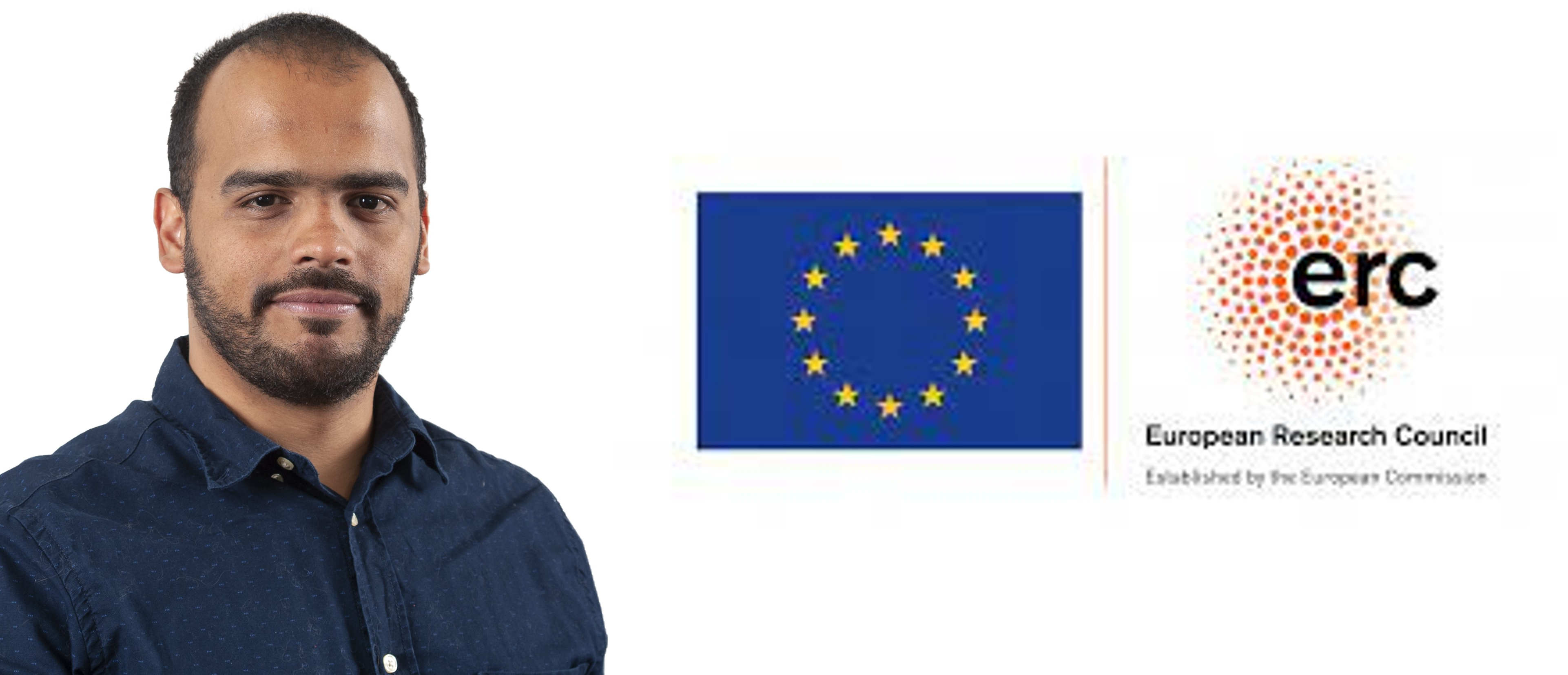Tuesday, 22 November 2022
ERC Starting Grant awarded to Dr José Hugo García, senior researcher at the ICN2
Dr José Hugo García, senior postdoctoral researched in the ICN2 Theoretical and Computational Nanoscience Group, has received one of the 408 grants assigned in the ERC Starting Grants 2022 call. Thanks to this funding, Dr García will be able to enhance his research career at the ICN2 and develop artificial intelligence-driven materials for spintronic applications over the next years.

The European Research Council (ERC) has published today the list of the researchers who have been awarded one of this year’s ERC Starting Grants. 408 grants, for a total €636 million, have been assigned, 168 of which in the Physical Sciences and Engineering area. This funding –provided by the Horizon Europe Programme— will help excellent young scientists, who have 2 to 7 years’ experience after their PhDs, to launch their own projects, form their teams and pursue their most promising ideas.
Among the awardees of an ERC Starting Grant 2022 is Dr José Hugo García, senior postdoctoral researched in the ICN2 Theoretical and Computational Nanoscience Group, who will develop new materials for spintronic applications. In his project, called AI4PSIN (Artificial Intelligence–Driven Materials Design for Spintronic Applications), he will combine artificial intelligence and biology-inspired optimization strategies to discover new combinations of two-dimensional materials, with the aim of improving next-generation ultralow power non-volatile memories. These newly designed memories will provide both the superior speed of random-access memories (RAM) and the large storage of solid state drives (SSD) at a fraction of the energy cost.
This year Spain obtained 15 ERC Starting Grants, ranking eighth among the 46 countries that received funding through this call. A set of statistics is available here, while the list of awardees is here.
This ERC Starting grant adds to the 12 ERC grants (4 Proof of Concept, 4 Starting, 2 Consolidator, 2 Advanced) already received by current and former ICN2 members. In detail, Prof. Daniel Maspoch scored four ERC grants, a Consolidator in 2013 for the InanoMOF project, a Proof of Concept in 2019 for the Hybead project, an Advanced in 2020 for CLIPOFF-CHEM, and another Proof of Concept in 2021 for SAFE-ON; Prof. Sergio Valenzuela won a Starting grant in 2021 for the SpinBound project and a Proof of Concept in 2019 for SOTMEM; Dr Klass-Jan Tielrooij was assigned a Starting grant in 2018 for the CUHL project and a Proof of Concept in 2021 for COOLGRAELE; Prof Clivia Sotomayor-Torres received an ERC Advanced in 2019 for her project LEIT; Prof Gustau Catalán was awarded a Starting grant in 2017 for the FLEXOELECTRICITY project; and former ICN2 researcher Dr Pietro Gambardella won a Starting grant (2008-2013) for the NOMAD project. Finally, Prof. María Escudero Escribano, who has recently joined the ICN2 as leader of the newly formed NanoElectrocatalysis and Sustainable Chemistry Group, received a Consolidator grant in 2021 for her ATOMISTIC project.
About the ERC
The ERC, set up by the European Union in 2007, is the premier European funding organisation for excellent frontier research. It funds creative researchers of any nationality and age, to run projects based across Europe. The ERC offers four core grant schemes: Starting Grants, Consolidator Grants, Advanced Grants and Synergy Grants. With its additional Proof of Concept Grant scheme, the ERC helps grantees to bridge the gap between their pioneering research and early phases of its commercialisation. The ERC is led by an independent governing body, the Scientific Council. Since 1 November 2021, Maria Leptin is the President of the ERC. The overall ERC budget from 2021 to 2027 is more than €16 billion, as part of the Horizon Europe programme, under the responsibility of the European Commissioner for Innovation, Research, Culture, Education and Youth, Mariya Gabriel.

